Books of the month: from Sandwich by Catherine Newman to I Was There by Alan Edwards
Martin Chilton reviews the biggest books for June

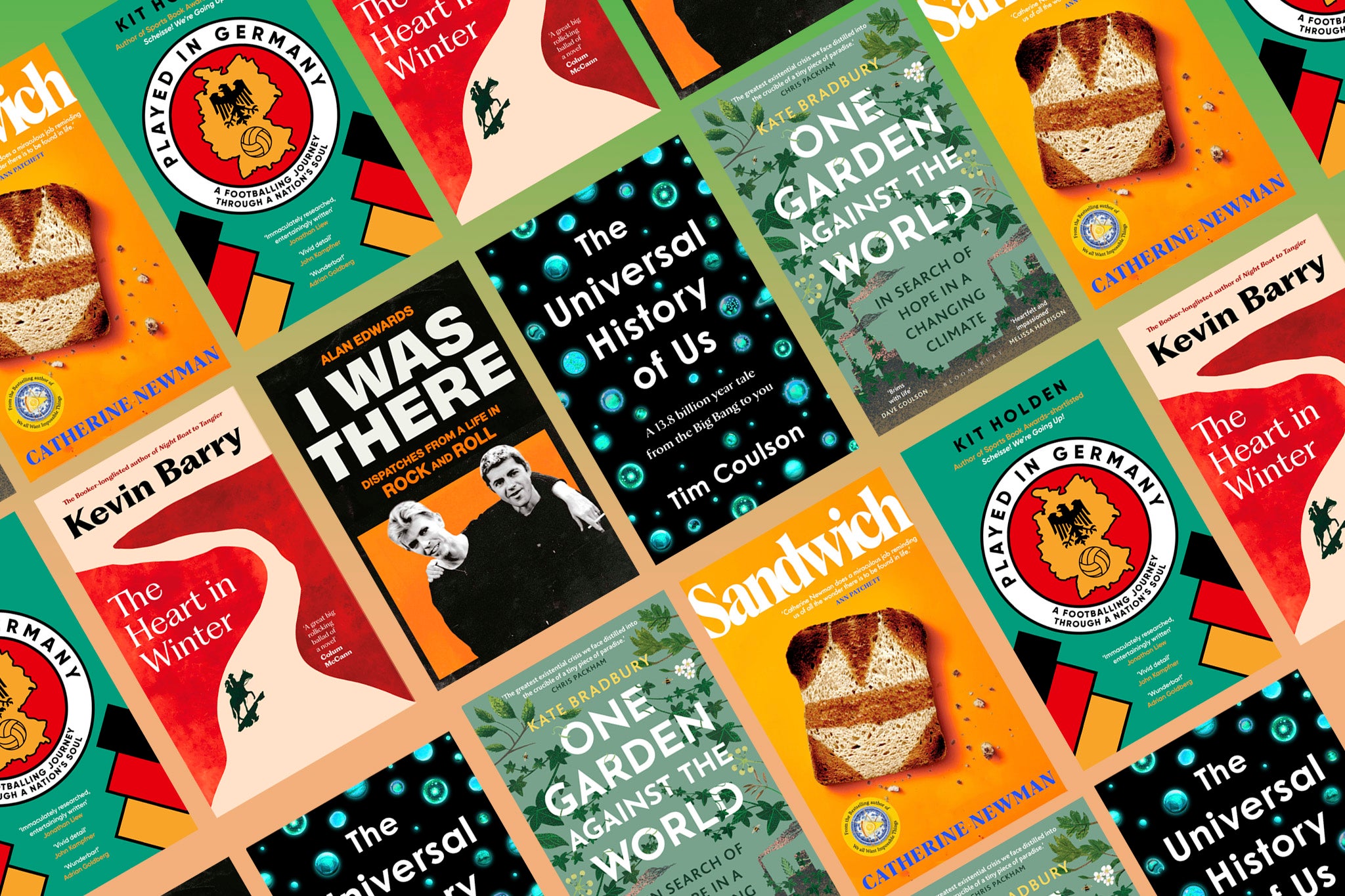
I once spent a hugely enjoyable hour interviewing Willie Nelson. Now, from Brian Fairbanks’s Willie, Waylon, and the Boys: How Nashville Outsiders Changed Country Music Forever (Hachette), I also discover how the maverick musician got the nickname “Shotgun Willie”. After Nelson’s daughter Lana was allegedly beaten up by her husband Steve, Nelson “slapped his son-in-law senseless and threatened to drown him Steve then pleaded, ‘Don’t hit me, Willie, I got anxiety.’” The tragi-comic feud escalated, however, when Steve returned with a rifle and fired at Nelson, who got out a shotgun and blasted back at Steve’s departing truck. “One shot blew out a tyre,” Fairbanks records. “Luckily, no one was injured, and the police declined to press charges. Interrogated about the incident, Nelson deadpanned: ‘He must’ve run over the bullet.’”
Bruce Springsteen’s Born in the USA is 40 years old this month and this triumphant album is explored in Steven Hyden’s There Was Nothing You Could Do: Bruce Springsteen’s ‘Born in the USA’ and the End of the Heartland (Hachette). I particularly enjoyed the story of Brian De Palma’s music video for the album’s hit track “Dancing in the Dark” (the one where the Boss dances with a young Courteney Cox) and how it replaced the original, which was evidently so daft that Springsteen walked off the set during filming and never came back.
Music PR guru Alan Edwards’s memoir (reviewed in full below) is part of a busy month in terms of music books, including Ann Powers’s in-depth study Travelling: On the Path of Joni Mitchell (HarperCollins). As well as the Mitchell tome, I would recommend Nige Tassell’s Searching for Dexys Midnight Runners: The Last Gang in Town (Nine Eight), in which the author tracks down all the members of the 1980s chart-toppers who played for Kevin Rowland’s band. Rowland wanted Van Morrison to be their producer and the Irishman was persuaded to see them rehearse at Birmingham’s Cedar Club. As tenor saxophonist Geoff Blythe recalls: “He stood at the door for literally about two seconds, turned around and walked back out. The door shut and that was that. It was the funniest thing. It was like a cowboy movie. I guess he just hated us.”
Finally, away from music, there is much to chew over in Matthew Lockwood’s compelling and humane This Land of Promise: A History of Refugees and Exiles (William Collins), which analyses some misconceptions about Britain’s history of immigration. We have a laudable past as a haven country – which Lockwood details in an account going back to 1695 – and the author reminds readers of that, as well as the uncertainty ahead in a world that is estimated to produce more than a billion climate refugees by 2050.
Novels by Kevin Barry and Catherine Newman and non-fiction from Alan Edwards, Kit Holden, Kate Bradbury and Professor Tim Coulson are reviewed in full below.
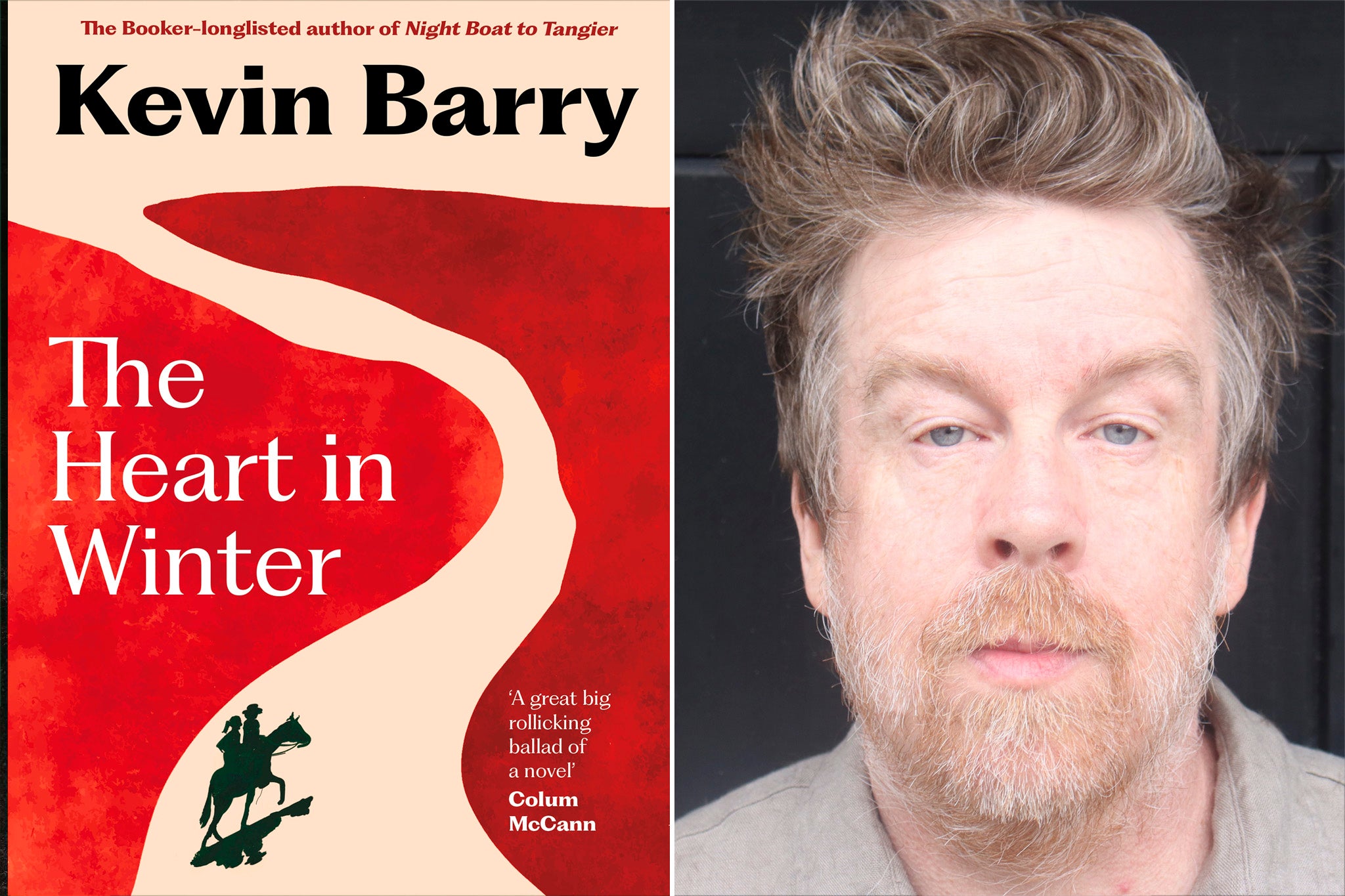
The Heart in Winter by Kevin Barry ★★★★★
Kevin Barry’s That Old Country Music was one of my favourite books of 2020 so I opened The Heart in Winter, his first historical fiction, with a good measure of anticipation. I was not disappointed. It’s stunning.
The novel starts in Butte, Montana, in 1891, a mining town “of whores and chest infections”, where Tom Rourke, a dope fiend poet and balladeer, is scraping by, helping miners write love letters to prospective brides.
When Tom flees the town with Polly Gillespie, the recent bride of the weird and devout mine captain Long Anthony Harrington, all hell breaks loose. Harrington hires three rancid “Cornish guns” for vengeance and they begin a brutal pursuit of the “maggot” Tom and his renegade lover.
As well as being a highly original novel about the American dream, The Heart in Winter is also Limerick-born Barry’s moving meditation on the immigrant experience for the Irish in America, especially those early settlers who were “vomited out of their homelands”. Many take refuge in sentimentality and what Barry calls the “deathhauntedness” of the Irish.
The novel sparkles with imaginative lyrical descriptions – including of warped sexual desires, the rank smells of the Wild West, the weather, the assorted strangers (one is “mottled and pecked-looking” – and is pinned together with numerous superb set-pieces. One of the sharpest is the one between the hard-bitten Butte sheriff and the deluded Harrington. For good measure, Barry even brings a mordant horse into the mix of Tom and Polly’s desperate attempt to reach San Francisco.
Barry keeps a tight rein on the tension, especially as the Cornish assassins close in on Tom and Polly. These desperadoes are genuinely horrifying. Barry writes of their ‘leader’, Jago Marrak, that “His noggin was a tower of screeching bats, as of some haunted West Country moor,” a phrase typical of the unusual phrasing Barry seems to have at his fingertips. The grim account of Polly being held hostage by Jago’s sidekick, a deranged “toothlackin” idiot who fattens her up “like a veal calf” for his bizarre sexual kicks – is memorably disturbing.
The Heart in Winter is a haunting misfit love story and a tale of venal, black-hearted men. The ending is sure-footed and sorrowful and fittingly realistic for a brilliantly twisty novel that brings the past to life with such intensity. This is one of 2024’s best, for sure.
‘The Heart in Winter’ by Kevin Barry is published by Canongate on 6 June, £16.99
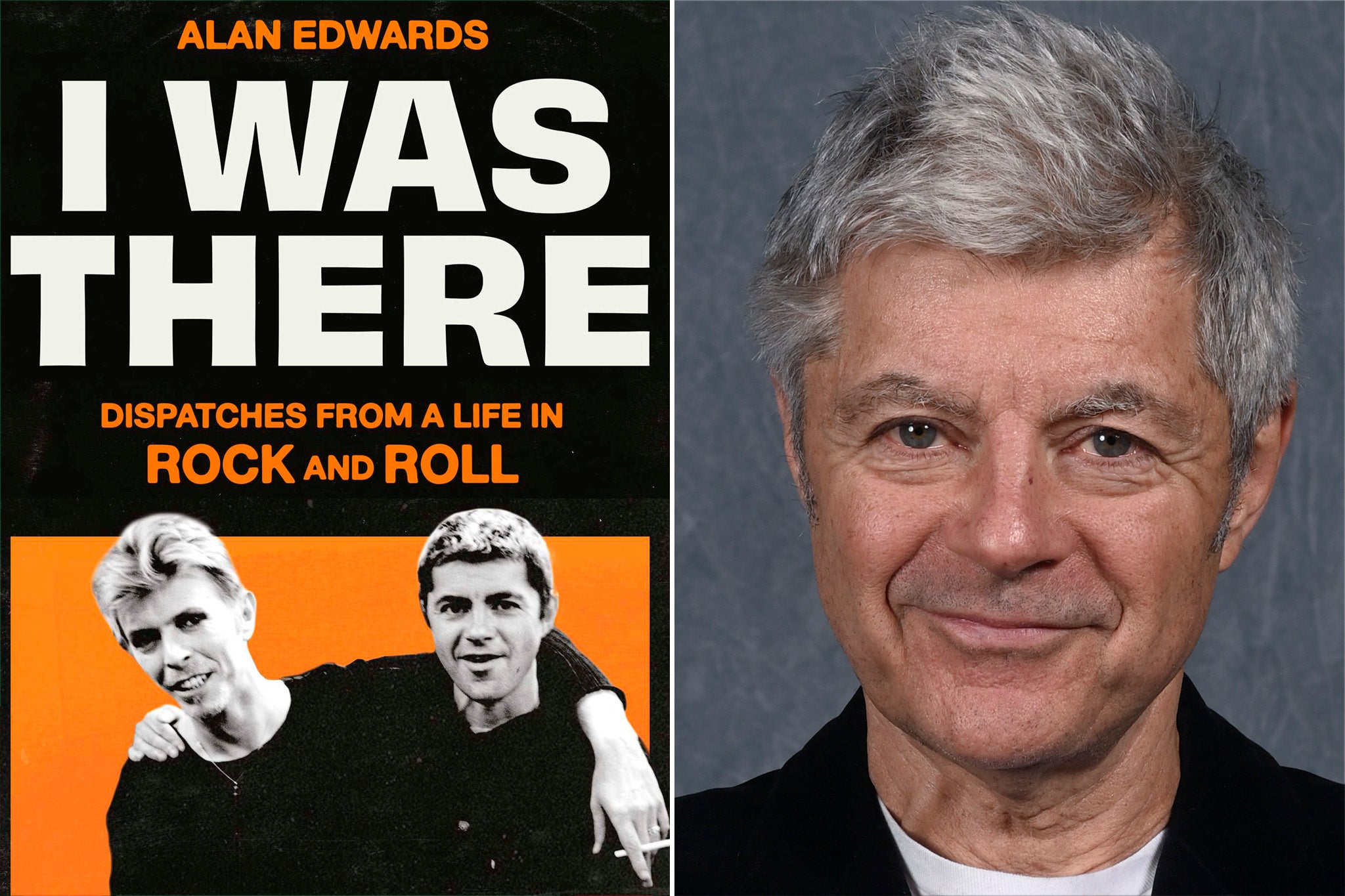
I Was There: Dispatches from a Life in Rock and Roll by Alan Edwards ★★★★☆
Alan Edwards owns up to some of the PR tricks used to manipulate journalists, admitting in I Was There: Dispatches from a Life in Rock and Roll that he would flatter music writers who had just interviewed Mick Jagger or Keith Richards, for example, by telling them theirs was the cleverest or funniest The Rolling Stones had done that day. “The key was to make them feel as if they had a moment of authentic connection, as that would mean a better article,” he writes. Darn! Is that why they say such nice things?
However, as his hugely entertaining memoir makes clear, it was often just as simple to ply the alcohol-sodden hacks of the Seventies with as much strong free booze and tasty food as possible to guarantee honeyed praise.
Edwards, founder of the Outside Organisation, makes clear what a precarious business music PR was in the old days. If you weren’t having to bribe the US mob, or play Russian roulette with a Hells Angel in Amsterdam, you were at the whim of skittish personalities such as Jagger, who hired and fired with ease. Even Elton John, who comes across as a generous enough soul, sacked Edwards after five years working together because he blamed him for a review in The Independent “slating one of his gigs”. John was apparently furious that Edwards had not “taken more time choosing the reviewer”, seemingly unaware of how an arts desk operates.
In among rollicking tales of the Sex Pistols, The Stranglers and Debbie Harry (who seems like a thoroughly good egg), Edwards deals with his own life, from his scallywag childhood behaviour to his panic attacks as an adult. He certainly has valid and eye-opening things to say about the racism of the press. One editor told him that they didn’t want to feature a particular artist because “Black people didn’t print properly on the paper they used”.
Edwards brings out the wild, bizarre side of his working life and the book is littered with oddballs, from the egomaniac Robert Maxwell to the eccentric Prince. Visiting celebrities would be asked to wear latex gloves to meet Prince backstage and he once conducted a conversation with Edwards entirely through his bodyguard. There is a lot about the dull Beckhams in the book, but the sections on David Bowie are far more interesting and enlightening. You have to admire a man who turns up for a glitzy event in his slippers. Others, including the “brittle” Bryan Ferry and the grammar detective Simon Le Bon, remain just cameos.
You suspect that the book pulls some of its punches (I’m sure the most outrageous or damaging tales had to stay in “the vault”) and the assessment of the “can you separate the artist from their art” debate following the “harrowing allegations” surrounding his client Michael Jackson is dispensed with in superficial style. The strength of the book (to me anyway) are the quirky stories and reminiscences, few funnier than the one about Keith Moon and an office desk.
For all the glamour and the proximity to genuine stardom, Edwards, to his credit, remains proudest of playing football with Bob Marley (a skilful player) and earning his approval. “Nothing has ever got close to getting a thumbs-up from Bob Marley for playing a good pass to him,” he states.
‘I Was There: Dispatches from a Life in Rock and Roll’ by Alan Edwards is published by Simon & Schuster on 6 June, £25

Played in Germany: A Footballing Journey Through a Nation’s Soul by Kit Holden ★★★☆☆
Premier League football has become, in part, such a soulless, money-obsessed thing, that German football, according to Kit Holden in Played in Germany: A Footballing Journey Through a Nation’s Soul, is still a place where “a football fan is not just a consumer, they are part of a community”.
The publication is timed for the European Championships (which are being held in 10 host German cities, including Berlin) and the eight chapters look at the different regional clubs of Germany. I liked the wackiness of the book, including the section about FC Köln’s goat mascot (which, hopefully, is not related to his note that Cologne is now ranked “the most sexually liberal city in the world”) and the story about former Borussia Dortmund manager Jürgen Klopp, who admitted he celebrated wildly in 2011 after leading them to their first Bundesliga title. “Klopp later confessed that he got so drunk that he and club chairman Hans-Joachim Watzke woke up in the bus depot and had to hitchhike back home,” Holden records.
There are lots of positive things about football in Germany, but the author does not shy away from the negatives, including the far-right tendencies that remain entrenched in some clubs, especially those with East German origins. Holden goes on to say that Germany is a country that still tolerates comedians blacking up and using the N-word on primetime German television. The author also explores the shameful part that some clubs played during the Nazi years. Eintracht Frankfurt expelled Jewish members and its wartime chair Rudolf Gramlich served in the SS and possibly committed war crimes. Eintracht removed his honorary presidency in 2020.
Finally, the book’s illustrations are good, especially the one of a less-than-happy Bayern Munich striker Harry Kane dressed in lederhosen and drinking beer at Oktoberfest. Kane scored a lot of goals in his first season abroad but won nothing, so at least he brought a flavour of Tottenham with him to Germany.
‘Played in Germany: A Footballing Journey Through a Nation’s Soul’ by Kit Holden is published by Duckworth on 6 June 2024, £12.99
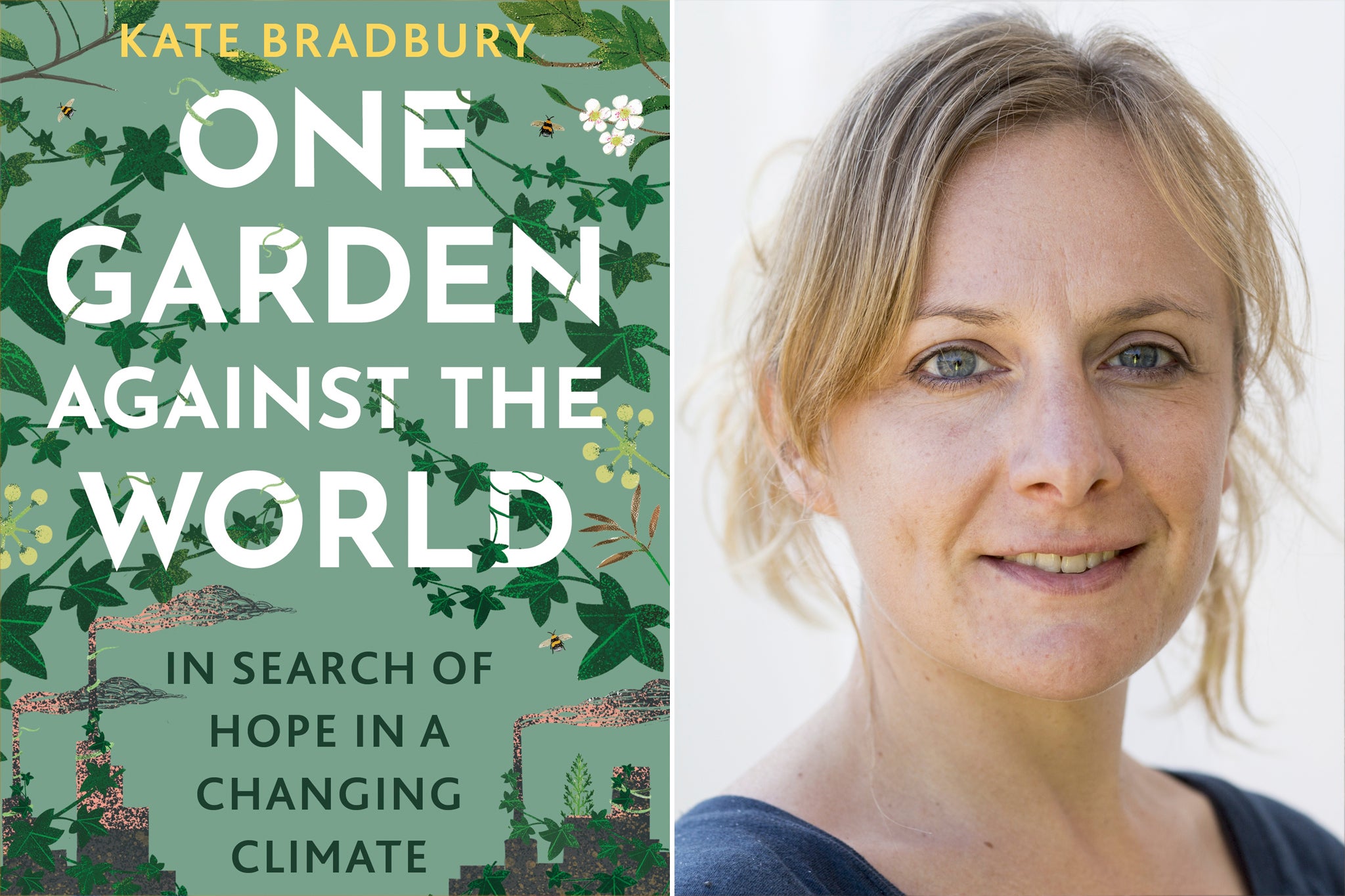
One Garden Against the World: In Search of Hope in a Changing Climate by Kate Bradbury ★★★☆☆
Gardening journalist Kate Bradbury recounts a story in her new book One Garden Against the World: In Search of Hope in a Changing Climate about a conversation with an Englishman after her inspiring trip to Australia. He told her Aboriginal civilisation “wasn’t to be taken seriously as they hadn’t built any tall buildings”. For tall buildings, read ego, she surmised, adding: “If only the ego wasn’t the dominant force of civilisation today, what would we know? I doubt we would be hurtling towards 3C of average global warming by the end of the century.” Amen to that.
The terrifying reality of climate change and the way humans have become disconnected from the natural world are themes of a potent book that urges people to have a deeper relationship with the world around us. The book is full of sweet reminders to take pleasure in simple things. “The sound of rain filling the water butt is joyous,” Bradbury writes. There is a handy “Where to Start” list at the end, which has made me want to try growing oregano.
There’s a lot in the book about saving hedgehogs (seeing one in your own garden is, I agree, a delight) in an account of how she turned her own garden into a welcome refuge for animals. She is also honest about her own feelings (there is a lot about someone called “Drone Bastard”) and her activism, including her memories of fighting against Margaret Thatcher’s “hateful” and homophobic Section 28 legislation.
The prose and the ideas are slightly wild and rambling, like an interesting garden I suppose, but I enjoyed the book and empathised with her bemusement and distress at the way people are so blinkered and blase about climate change. The book is a positive one, but her central question remains: “What will be left?” if we carry on being such a self-destructive race.
‘One Garden Against the World: In Search of Hope in a Changing Climate’ by Kate Bradbury is published by Bloomsbury on 6 June, £18.99

Sandwich by Catherine Newman ★★★★★
Catherine Newman’s Sandwich, about a family holiday to a beach rental in Cape Cod, is set over seven days (with brief “prologue” and “after” chapters) and centres around mother Rocky, her husband Nick, their children, their partners and two grandparents, who all travel to a holiday rental that has been a feature of their lives for two decades.
Let’s toast Newman for a wonderful novel that opens in witty style with a plumbing disaster and a gruesome simile. “Nick is bent over the toilet with the plunger again, working it like he’s churning some kind of debased butter!” says Rocky.
The characters – especially queer daughter Willa – draw you in to the drama and, in Rocky, Newman offers a raucous and biting depiction of a woman in her early fifties. “If menopause were an actual substance, it would be spraying from my eyeballs,” she says. It’s also wry and humorous about marriage and sexism, with a sobering joke for men who chomp down “boner” pills. “I just saw an ad for men who want to last longer. Who wants a guy to last longer? Finish up is my feeling. My library book’s not going to read itself,” Rocky muses.
Sandwich is shrewd and funny, heart-warming and sorrowful (often in the same paragraph) and Newman deftly captures how you can be simultaneously enraptured and overwhelmed by parenthood. Sandwich is a great summer read.
‘Sandwich’ by Catherine Newman is published by Doubleday on 6 June, £16.99
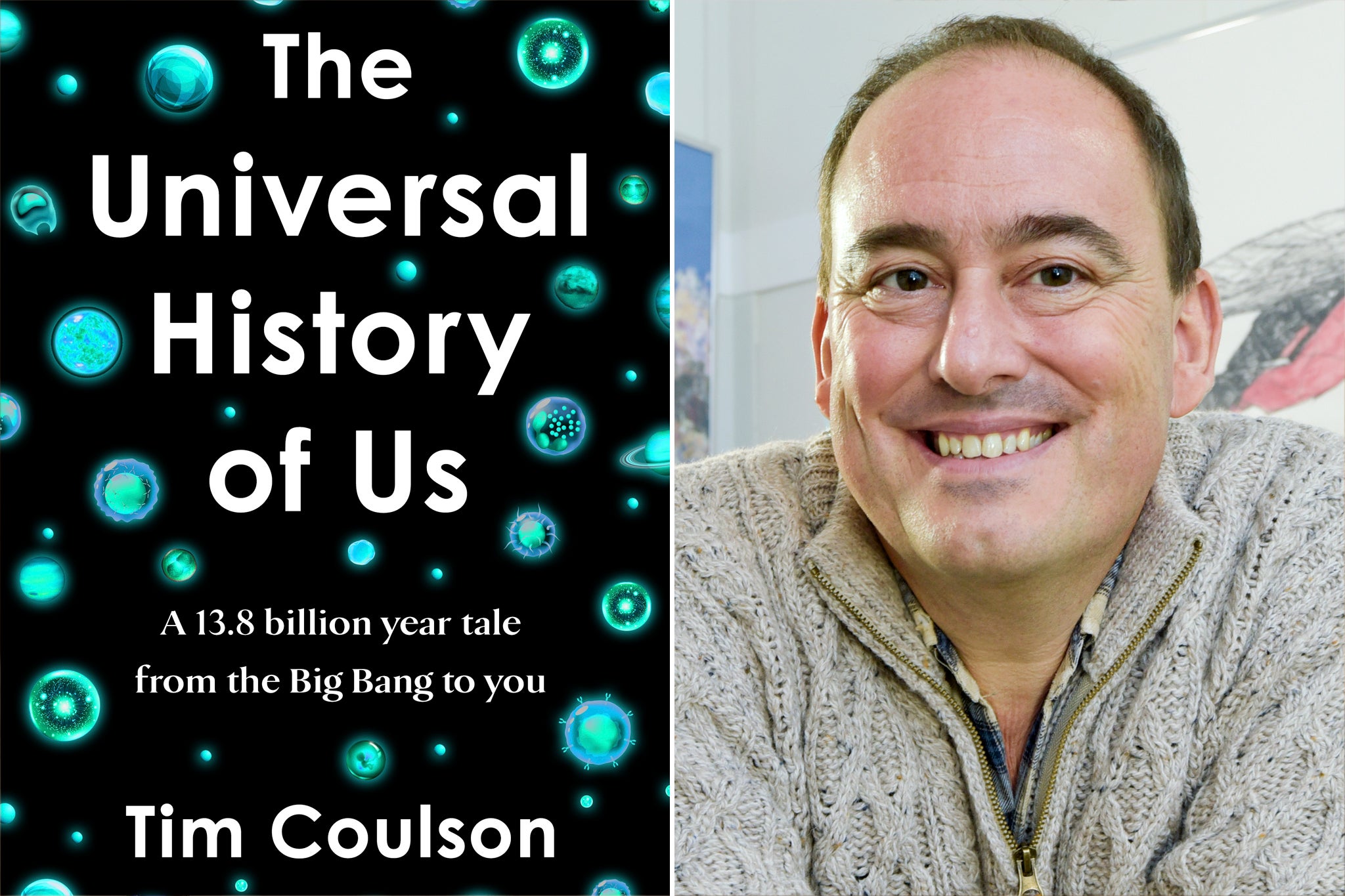
The Universal History of Us: A 13.8 Billion Year Tale from the Big Bang to You Tim Coulson ★★★★☆
Tim Coulson, the Oxford professor of zoology, says he wants his book The Universal History of Us: A 13.8 Billion Year Tale from the Big Bang to You to “convince you of science’s remarkable achievements”, which might be a big ask for the one in six Britons who believe the moon landings were faked (according to a 2019 survey Coulson cites).
Coulson’s book is highly readable and a neat mixture of erudition and entertainment (admittedly, there were times when it lost a non-science reader like me) and amid the science he veers off on droll detours about his own life. He admits to being a bit of a “weirdo” in his school years (which given the evidence, that he admits to dressing in golfing trousers and wearing a trench coat and a green trilby, is likely true) but his enthusiasm for learning is palpable and he conveys his genuine enthusiasm for scientific landmarks (the Higgs boson contraption) as much as for geological ones (the mountain range of Australia’s Bungle Bungles).
Coulson covers a lot over 464 pages – the seismic stuff such as the big bang theory, human genetics, the galaxy, how we know the universe is flat (what is above and below it, I mused, probably in deep ignorance), DNA and quantum mechanics, along with startling facts about the horrifying truth of what’s in Botox and how a genius such as Isaac Newton was still a small man who was “paranoid and held grudges”.
In the final sections, in which Coulson looks at consciousness, he includes a few thoughts about religion and why there is “no scientific evidence” for the deities that humans have created. “I don’t understand that if our existence does have a purpose beyond genetic replication, why did it take nearly 13.77 billion years for us to arise? What were deities up to for all this time?” he asks.
Perhaps, rather like Manchester United’s Casemiro, God moves in mysterious and very slow ways.
‘The Universal History of Us: A 13.8 Billion Year Tale from the Big Bang to You’ by Professor Tim Coulson is published by Michael Joseph on 13 June, £30
Join our commenting forum
Join thought-provoking conversations, follow other Independent readers and see their replies
Comments
Bookmark popover
Removed from bookmarks